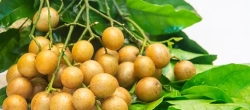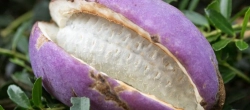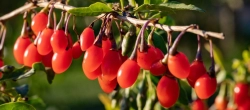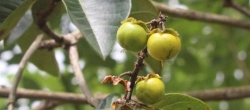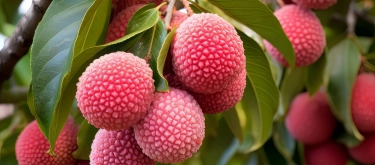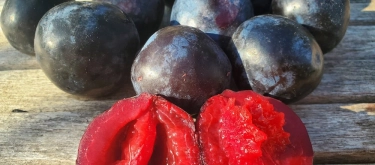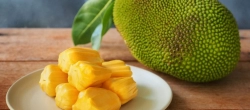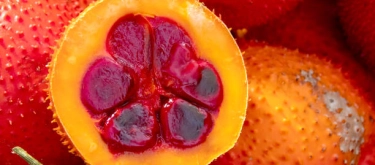Monk Fruit (Arhat): Taste, Uses, Benefits and Harm
Monk fruit, also known as luo han guo or arhat fruit, is a small, round fruit native to southern China and northern Thailand. Celebrated for its natural sweetness, monk fruit has been used in traditional Chinese medicine for centuries and is now commonly used as a natural, calorie-free sweetener. Its unique properties make monk fruit an excellent sugar substitute, and its health benefits have made it increasingly popular in wellness circles. This article explores the flavor characteristics of monk fruit, its culinary uses, health benefits, and tips for selecting and storing it.
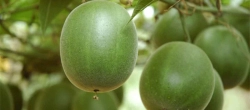
Primary Flavor Characteristics
Monk fruit has an intense sweetness, approximately 150–200 times sweeter than sugar, due to the presence of natural compounds called mogrosides. Unlike sugar, monk fruit does not contain fructose or glucose, which gives it a sweetness without the aftertaste or calories associated with artificial sweeteners. Its flavor is mild with earthy undertones, making it a versatile sweetening option.
Aromatic and Taste Nuances
Monk fruit has a subtle, fresh aroma and a taste that is sweet without the lingering aftertaste of some non-sugar sweeteners. The mogrosides in monk fruit also have slight herbal and earthy notes, which complement its mild sweetness.
Scientific Description of Taste and Aroma
- Aroma: Lightly earthy and herbal, with a fresh, subtle sweetness.
- Taste: Intense, clean sweetness with mild earthy undertones.
- Texture: When used in powdered form, it is light and dissolves easily in liquids.
In-Depth Flavor Analysis of Monk Fruit
Underlying Flavor Notes
Monk fruit’s unique sweetness is complex and multi-layered:
- Intense Sweetness: The mogrosides in monk fruit provide an intense sweetness, eliminating the need for large quantities in recipes.
- Mild Earthiness: Monk fruit has gentle, earthy notes that balance its sweetness, giving it a natural flavor profile.
- Subtle Herbal Hints: A slight herbal quality adds depth, especially in recipes where monk fruit is used with other ingredients like tea or spices.
Impact of Ripeness on Flavor
- Unripe Monk Fruit: Rarely used, as it is less sweet and lacks the pronounced mogrosides found in ripe fruit.
- Fully Ripe Monk Fruit: Provides the most intense sweetness with a balanced, clean taste ideal for culinary and medicinal uses.
Textural Qualities
Fresh monk fruit has a soft, pulpy interior when ripe, although it is most commonly processed into a powdered sweetener. When dried, monk fruit can be brewed into teas or rehydrated for use in cooking.
Culinary Uses of Monk Fruit
Primary Uses
- Sweetener: Monk fruit is most commonly used as a natural sweetener in powdered or liquid extract form, suitable for beverages, desserts, and sauces.
- Baking and Cooking: Its stable sweetness at high temperatures makes it ideal for baking, though adjustments to recipes are often necessary due to its concentrated sweetness.
- Teas and Beverages: Monk fruit can be brewed as a tea on its own or added to herbal blends for a subtle sweetness.
- Asian Dishes and Sauces: Traditionally, monk fruit is used in Chinese cuisine for soups and stews, especially as a natural remedy for sore throats and coughs.
Ideal Pairings for Monk Fruit
- Citrus: Lemon and lime enhance monk fruit’s refreshing sweetness, adding a touch of acidity to balance its intense flavor.
- Herbs: Mint and basil pair well with monk fruit in beverages and desserts, adding a fresh contrast.
- Spices: Ginger and cinnamon add warmth, complementing the sweetness of monk fruit in teas and baked goods.
- Berries: Strawberries, blueberries, and raspberries balance monk fruit’s sweetness in jams and sauces.
- Cocoa and Coffee: Monk fruit’s clean sweetness works well in chocolate and coffee-based recipes as a sugar alternative.
Health Benefits of Monk Fruit
Key Nutrients and Benefits
- Zero Calorie Sweetener: Monk fruit provides sweetness without calories, making it an excellent option for those managing blood sugar levels or reducing caloric intake.
- Antioxidants: Mogrosides in monk fruit are powerful antioxidants that help combat inflammation and protect cells from oxidative stress.
- No Glycemic Impact: Monk fruit does not raise blood sugar levels, making it a suitable choice for people with diabetes.
- Digestive Benefits: Monk fruit has been traditionally used in Chinese medicine to aid digestion and support gut health.
- Anti-inflammatory Properties: Compounds in monk fruit may help reduce inflammation, which benefits overall health.
Potential Precautions
- Allergic Reactions: Though rare, some individuals may experience allergic reactions to monk fruit, especially if they have allergies to other gourds.
- Additives in Commercial Products: Some monk fruit sweeteners contain added sugars or artificial ingredients, so it’s best to check labels for pure monk fruit extract.
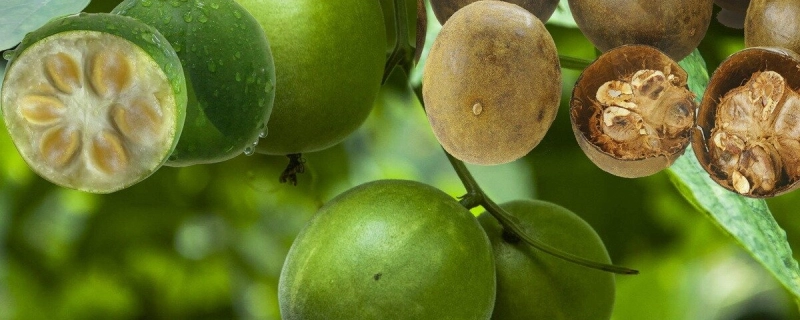
Tips for Choosing and Storing Monk Fruit
How to Choose Quality Monk Fruit Products
- Purity of Ingredients: Look for monk fruit sweeteners that contain 100% monk fruit extract without added sugars or fillers.
- Forms of Monk Fruit: Monk fruit is available in powder, liquid, and dried forms. Choose based on your recipe needs, as some forms are better suited for specific culinary uses.
- Color and Aroma: Pure monk fruit extract should have a clean, sweet aroma with no bitterness or artificial smell.
Storage Recommendations
- At Room Temperature: Monk fruit extract, whether powdered or liquid, can be stored in a cool, dry place away from sunlight.
- Refrigeration: Monk fruit syrup or liquid extracts may last longer if refrigerated after opening.
- Dried Monk Fruit: For brewing, dried monk fruit can be stored in an airtight container in a cool, dark place.
Fun Facts About Monk Fruit
- Ancient History: Monk fruit has been used in traditional Chinese medicine for centuries, especially for respiratory health.
- Named After Monks: The fruit is named “monk fruit” because Buddhist monks were believed to have first cultivated it in the 13th century.
- Calorie-Free Sweetness: Unlike sugar, monk fruit gets its sweetness from mogrosides, which do not contain calories or carbohydrates.
